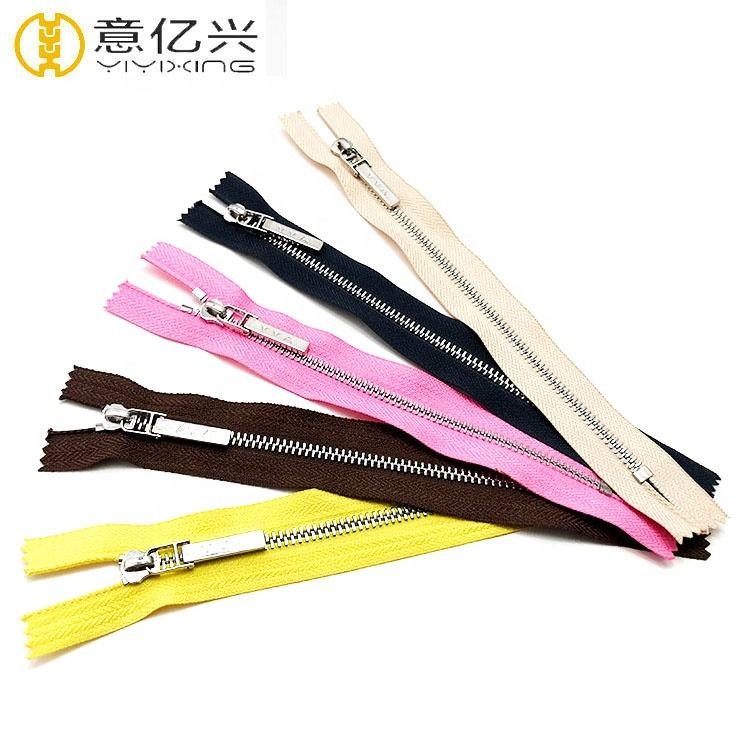When it comes to zippers, there are two main types: plastic zippers and metal zippers. Both types have their own advantages and disadvantages, depending on the application and the user's preferences. In this article, we will discuss the pros and cons of plastic zippers and metal zippers to determine which is better.
Plastic Zippers
Plastic zippers are made from a variety of materials, including nylon, polyester, and PVC. They are commonly used in clothing, bags, and other textiles. The main advantages of plastic zippers are:
1. Lightweight: Plastic zippers are lighter in weight than metal zippers, which can be an advantage in applications where weight is a concern, such as in lightweight clothing or backpacks.
2. Corrosion-resistant: Plastic zippers are not susceptible to corrosion, which can be an advantage in applications where the zipper may be exposed to moisture or other corrosive substances.

3. Easy to care for: Plastic zippers are easy to care for and can be washed or cleaned without the risk of rust or other damage.
4. Cost-effective: Plastic zippers are generally less expensive than metal zippers, which can make them a more cost-effective option for certain applications.
However, plastic zippers also have some disadvantages:
1. Durability: Plastic zippers are generally not as durable as metal zippers and may break or become damaged more easily, especially with frequent use.
2. Limited strength: Plastic zippers are not as strong as metal zippers and may not be suitable for applications where a high level of strength is required.
3. Limited temperature range: Plastic zippers may become brittle or warp at high temperatures, which can limit their usefulness in certain applications.
Metal Zippers
Metal zippers are made from a variety of materials, including brass, aluminum, and stainless steel. They are commonly used in heavy-duty applications, such as in outdoor gear, workwear, and luggage. The main advantages of metal zippers are:
1. Durability: Metal zippers are more durable than plastic zippers and can withstand heavy use and abuse without breaking or becoming damaged.
2. Strength: Metal zippers are stronger than plastic zippers and can handle heavier loads and greater stresses without failing.
3. Temperature-resistant: Metal zippers can withstand a wide range of temperatures without becoming brittle or warping, which makes them suitable for use in extreme environments.
However, metal zippers also have some disadvantages:
1. Heavy: Metal zippers are heavier than plastic zippers, which can be a disadvantage in applications where weight is a concern.
2. Corrosion-prone: Metal zippers may corrode over time, especially if they are exposed to moisture or other corrosive substances.
3. Higher cost: Metal zippers are generally more expensive than plastic zippers, which can make them less cost-effective for certain applications.
Which is Better: Plastic or Metal Zippers?
The answer to this question depends on the specific application and the user's preferences. For applications where weight is a concern and durability is not critical, plastic zippers may be a better choice. On the other hand, for heavy-duty applications where strength and durability are essential, metal zippers are the better option.
In addition, some users may prefer the look and feel of metal zippers, while others may prefer the lightweight and flexible nature of plastic zippers. Ultimately, the choice between plastic and metal zippers will depend on a variety of factors, including the application, the user's preferences, and the budget.
Conclusion
In conclusion, both plastic zippers and metal zippers have their own advantages and disadvantages. Plastic zippers are lightweight, corrosion-resistant, easy to care for, and cost-effective, but may not be as durable or strong as metal zippers. Metal zippers are durable, strong, temperature-resistant, but may be heavy, corrosion-prone, and more expensive. The choice between plastic and metal zippers will depend on the specific application and the user's preferences.


